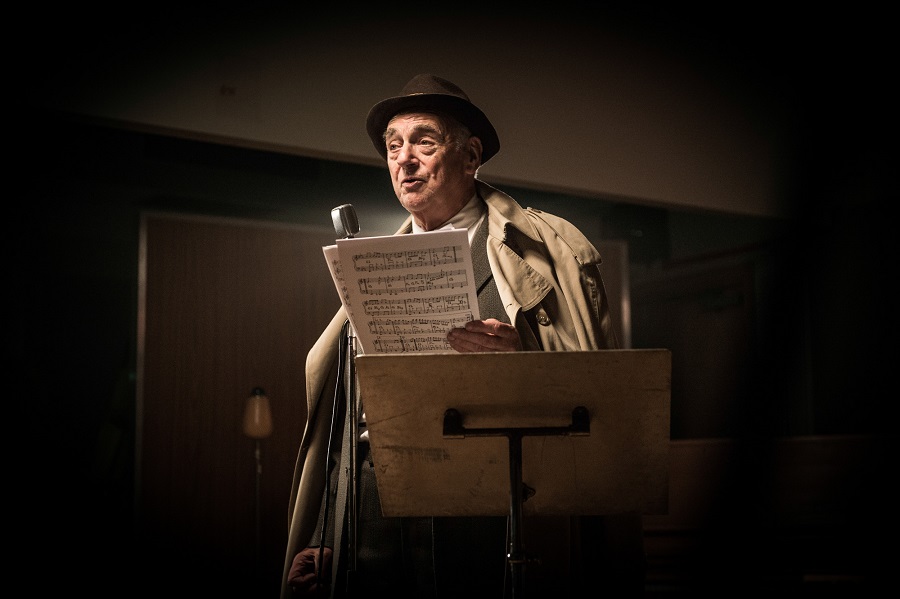The sclerotic culture of dithering that afflicts the higher-ups at the BBC has been mercilessly exposed in W1A. It turns out that fear of failure was always a managerial thing at the corporation. How else did Dad’s Army have such a bumpy ride to birth? As told in We’re Doomed! The Dad’s Army Story, one of the most enduring sitcoms ever made was very nearly never made.
Stephen Russell’s script took the facts of the story and wove them into a comedy drama that touched and tickled in equal measure. At the heart of it was the partnership of David Croft and Jimmy Perry, one a producer barely tolerated by the bosses, the other a theatre actor of the old school who, in a hilarious opening sequence, flunked an audition with a disastrous array of hammy accents. His response was to write himself a part that, if commissioned, they’d have to cast him in. The Fighting Tigers was a terrible title but a brilliant idea about the splendid old codgers who were Blighty’s last line of defence against the fearful Hun. It was adopted fanatically by Croft, keenly by comedy boss Michael Mills, warily by light entertainment head Tom Sloan and with fierce reluctance by BBC1 controller Paul Fox. The higher the authority, the more conservative the instincts. (Pictured below: Richard Dormer and Paul Ritter as Croft and Perry.)
 As a succinct portrait of internal BBC politics We’re Doomed! brimmed with wry amusement, personified in Keith Allen as the martinet controller Fox who feared antagonising the audience by mocking fresh memories of a nation’s heroic wartime sacrifice. The deeper pleasure was in the assembly of that wonderful cast: third-choice Arthur Lowe had to be lunched into accepting the gig; John Le Mesurier and Clive Dunn agreed to slum it together; John Laurie – shades of Alan Rickman in Galaxy Quest – deplored the fact that Private Frazer’s only character trait was Scottishness. Arnold Ridley, a prolific former playwright, warned Perry never to make the same mistake as him and surrender his copyright. Meanwhile Lowe, struggling with both constipation and remembering his lines, told Ian Lavender to stand close to him in order to be noticed.
As a succinct portrait of internal BBC politics We’re Doomed! brimmed with wry amusement, personified in Keith Allen as the martinet controller Fox who feared antagonising the audience by mocking fresh memories of a nation’s heroic wartime sacrifice. The deeper pleasure was in the assembly of that wonderful cast: third-choice Arthur Lowe had to be lunched into accepting the gig; John Le Mesurier and Clive Dunn agreed to slum it together; John Laurie – shades of Alan Rickman in Galaxy Quest – deplored the fact that Private Frazer’s only character trait was Scottishness. Arnold Ridley, a prolific former playwright, warned Perry never to make the same mistake as him and surrender his copyright. Meanwhile Lowe, struggling with both constipation and remembering his lines, told Ian Lavender to stand close to him in order to be noticed.
 There’ll be other actors along in the new year in the big-screen Dad’s Army but in the mean time John Sessions, the spitting image of Lowe, led a company which came blissfully close to the originals. Julian Sands suavely reincarnating the dapper Le Mesurier and Mark Heap's antic Clive Dunn were a particular pleasure. But the very heart of the drama was the oddball partnership of Croft and Perry. Richard Dormer in thick horn rims was all avuncular competence and canny good sense as Croft, who contrived to lose the pesky audience research results which would have condemned the show to an early grave. Paul Ritter’s delicious Perry, parading a dashing array of floral lapels and leather blousons, had the longest journey as an actor on the skids who suffered ejection from the cast of his own creation – he wanted to be the crafty cockney Private Walker, but lost out to Jimmy Beck (Kevin Bishop).
There’ll be other actors along in the new year in the big-screen Dad’s Army but in the mean time John Sessions, the spitting image of Lowe, led a company which came blissfully close to the originals. Julian Sands suavely reincarnating the dapper Le Mesurier and Mark Heap's antic Clive Dunn were a particular pleasure. But the very heart of the drama was the oddball partnership of Croft and Perry. Richard Dormer in thick horn rims was all avuncular competence and canny good sense as Croft, who contrived to lose the pesky audience research results which would have condemned the show to an early grave. Paul Ritter’s delicious Perry, parading a dashing array of floral lapels and leather blousons, had the longest journey as an actor on the skids who suffered ejection from the cast of his own creation – he wanted to be the crafty cockney Private Walker, but lost out to Jimmy Beck (Kevin Bishop).
Russell’s feel for the period is a given: he wrote Hattie, the drama about the private love life of Hattie Jacques (whom scholars of the era will know was married to Le Mesurier). The most authentic period touch of all was a short simple scene in which Roy Hudd as Bud Flanagan recorded the signature tune which reassured viewers it was OK to laugh. This gang show about a gang show should be required viewing at management meetings at the top of the BBC. OK, so they keep commissioning comedies which lacerate the bosses. But it would be better if they learned the lesson: the talent knows what it's doing.















Add comment